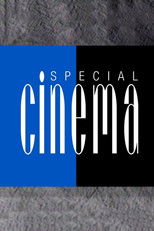

Anne-Marie Miéville
Born: November 11, 1945
in Lausanne, Vaud, Switzerland
in Lausanne, Vaud, Switzerland
Anne-Marie Miéville, born November 11, 1945 in Lausanne, is a filmmaker, director, producer, screenwriter, actress and writer from Vaud. Anne-Marie Miéville works as a photographer and is the manager of a bookstore. In the 1960s, she also recorded two variety discs for Barclay, on songs by Jean-Jacques Debout. Then in 1972, she met Jean-Luc Godard in Paris, who became her companion until his death in 2022. Initially, from 1973 to 1994, she collaborated with this filmmaker as a photographer, screenwriter, editor, co-director and artistic director for some of her/their films. Then in 1983, she directed her first short film, "How Can I Love", and, a year later, a second short film, "Le Livre De Marie".
Since then, she has continued to make films. Through her cinematographic stories, she questions, with a singularity of tone, love, time, the meaning of things, ... Her first feature film is called: "My Dear Subject" and was released in 19883. 1994 "Lou Didn't Say No".
Still in 1994, Anne-Marie Miéville published "Histoire Du Garçon", a text retracing the career and life of her brother Alain, who died accidentally in 1993. In 1996/1997, a new feature film was broadcast, "Nous Sommes Tous Encore Here". Then in 2000, "Après La Réconciliation" in which she appeared, accompanied by Claude Perron, Jacques Spiesser, Jean-Luc Godard and Xavier Marchand.
In 2002, she wrote "Images In Words", short texts published by Farrago, which the publisher wrote were "a series of fixed shots, short films of writing. Strictly speaking, it is not a question of news, but rather of indescribable moments, fleeting perfumes of images, where it would be a question of filming with words”.
Since then, she has continued to make films. Through her cinematographic stories, she questions, with a singularity of tone, love, time, the meaning of things, ... Her first feature film is called: "My Dear Subject" and was released in 19883. 1994 "Lou Didn't Say No".
Still in 1994, Anne-Marie Miéville published "Histoire Du Garçon", a text retracing the career and life of her brother Alain, who died accidentally in 1993. In 1996/1997, a new feature film was broadcast, "Nous Sommes Tous Encore Here". Then in 2000, "Après La Réconciliation" in which she appeared, accompanied by Claude Perron, Jacques Spiesser, Jean-Luc Godard and Xavier Marchand.
In 2002, she wrote "Images In Words", short texts published by Farrago, which the publisher wrote were "a series of fixed shots, short films of writing. Strictly speaking, it is not a question of news, but rather of indescribable moments, fleeting perfumes of images, where it would be a question of filming with words”.
Movies for Anne-Marie Miéville...
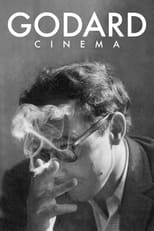
Title: Godard Cinema
Character: Self (archive footage)
Released: June 5, 2023
Type: Movie
Jean-Luc Godard is synonymous with cinema. With the release of Breathless in 1960, he established himself overnight as a cinematic rebel and symbol for the era's progressive and anti-war youth. Sixty-two years and 140 films later, Godard is among the most renowned artists of all time, taught in every film school yet still shrouded in mystery. One of the founders of the French New Wave, political agitator, revolutionary misanthrope, film theorist and critic, the list of his descriptors goes on and on. Godard Cinema offers an opportunity for film lovers to look back at his career and the subjects and themes that obsessed him, while paying tribute to the ineffable essence of the most revered French director of all time.

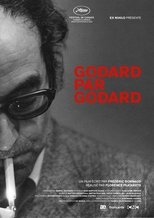
Title: Godard by Godard
Character: Self (archive footage)
Released: May 17, 2023
Type: Movie
Godard by Godard is an archival self-portrait of Jean-Luc Godard. It retraces the unique and unheard-of path, made up of sudden detours and dramatic returns, of a filmmaker who never looks back on his past, never makes the same film twice, and tirelessly pursues his research, in a truly inexhaustible diversity of inspiration. Through Godard’s words, his gaze and his work, the film tells the story of a life of cinema; that of a man who will always demand a lot of himself and his art, to the point of merging with it.

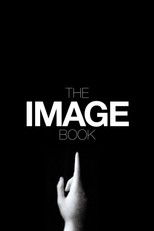
Title: The Image Book
Character: Narrator (voice)
Released: October 11, 2018
Type: Movie
In Le Livre d’Image, Jean-Luc Godard recycles existing images (films, documentaries, paintings, television archives, etc.), quotes excerpts from books, uses fragments of music. The driving force is poetic rhyme, the association or opposition of ideas, the aesthetic spark through editing, the keystone. The author performs the work of a sculptor. The hand, for this, is essential. He praises it at the start. “There are the five fingers. The five senses. The five parts of the world (…). The true condition of man is to think with his hands. Jean-Luc Godard composes a dazzling syncopation of sequences, the surge of which evokes the violence of the flows of our contemporary screens, taken to a level of incandescence rarely achieved. Crowned at Cannes, the last Godard is a shock film, with twilight beauty.


Title: Jean-Luc Godard and Anne-Marie Miéville on Google StreetView
Character: Self
Released: February 21, 2018
Type: Movie
A short film utilizing Google Maps' StreetView feature where Jean-Luc Godard and Anne-Marie Miéville are captured walking the streets of Switzerland. Set to music from Godard's film "Contempt" composed by Georges Delerue.


Title: Four Short Films
Character: Narrator (voice)
Released: March 6, 2006
Type: Movie
Jean-Luc Godard, and Anne-Marie Miéville Four Short Films

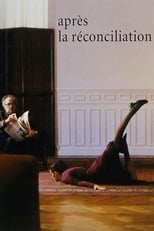
Title: After the Reconciliation
Character: La première femme
Released: December 27, 2000
Type: Movie
An elderly couple and a younger man and woman follow up failed seduction attempts with conversation about love and the meaning of life.

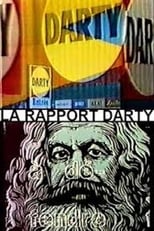
Title: The Darty Report
Character: Mamzelle Clio
Released: January 1, 1989
Type: Movie
A daring deconstruction of consumerist behavior featuring a robot and Miss Clio Darty, with a voiceover by Godard and Anne-Marie Miéville, this philosophical "report," like so many of Godard's commissions, was rejected by its funders.

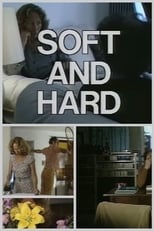
Title: Soft and Hard
Character: Self
Released: August 12, 1985
Type: Movie
Jean-Luc Godard and Anne-Marie Miéville talk about their films, while doing everyday tasks around their house.

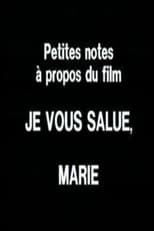
Title: Petites notes à propos du film 'Je vous salue, Marie'
Character: Self
Released: January 1, 1983
Type: Movie
Notes on the inception and making of Hail Mary.

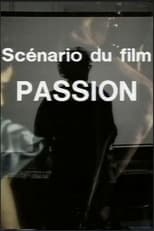
Title: Scénario du film Passion
Character: Self
Released: January 28, 1982
Type: Movie
Godard constructs a lyrical study of the cinematic and creative process by deconstructing the story of his 1982 film Passion. “I didn’t want to write the script,” he states, “I wanted to see it.” Positioning himself in a video editing suite in front of a white film screen that evokes for him the “famous blank page of Mallarmé,” Godard uses video as a sketchbook with which to reconceive the film. The result is a philosophical, often humorous rumination on the desire and labor that inform the conceptual and image making process of the cinema.


Title: Here and Elsewhere
Character: Narrator (voice)
Released: September 15, 1976
Type: Movie
"Here is a family of average French people in front of their television. Elsewhere, they are Palestinian fighters filmed before the massacres of Black September." (JLG, 1976). "We came here to study this: to learn, to learn lessons, if possible to record these lessons, to then broadcast them here, or elsewhere in the world. Almost a year ago, two of us came to investigate the Democratic Front. Then another went to Fath. We read the texts and programs. As French Maoists, we decided to make the film with Fath whose title is Until Victory. We let the Palestinians , during the film, themselves say the word: "Revolution". But the true title of the film is Methods of Thought and Work of the Palestinian Liberation Movement." (JLG, Manifesto, July 1970)

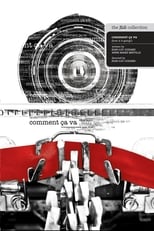
Title: How's It Going?
Character: Odette
Released: May 21, 1976
Type: Movie
During the making of a video film about a communist printing press, a union member and a leftist activist discuss how to present their information, especially how to caption two specific images: one of a protest in Portugal, the other of a strike in France. One of them decides to write to his son, a manual worker living outside of Paris with his girlfriend, telling the young man about his troubles.


Title: Six fois deux/Sur et sous la communication
Character: Self
Released: March 12, 1976
Type: Movie
The title and subtitle of this French miniseries are “Six Times Two; Over and under the media”. The “six” refers to the fact that there are six episodes; the “two” has a double meaning.

